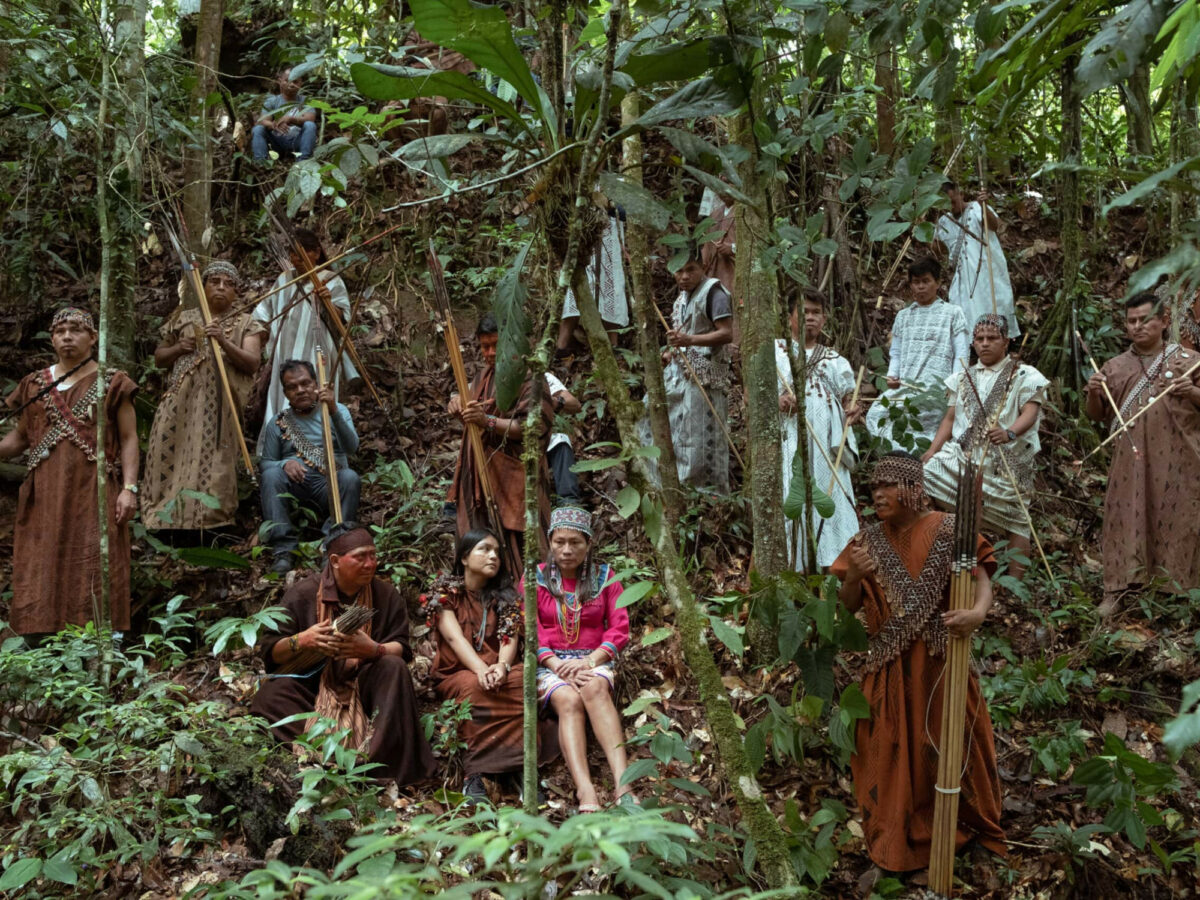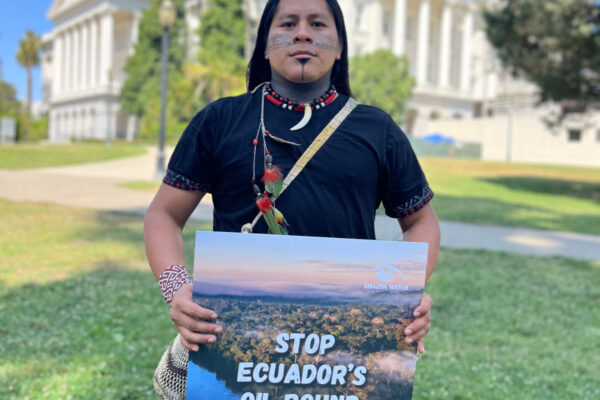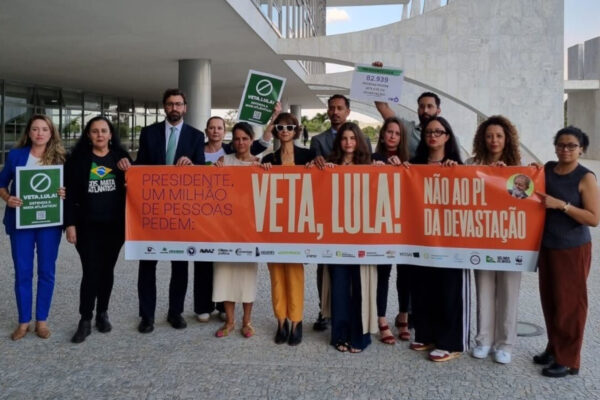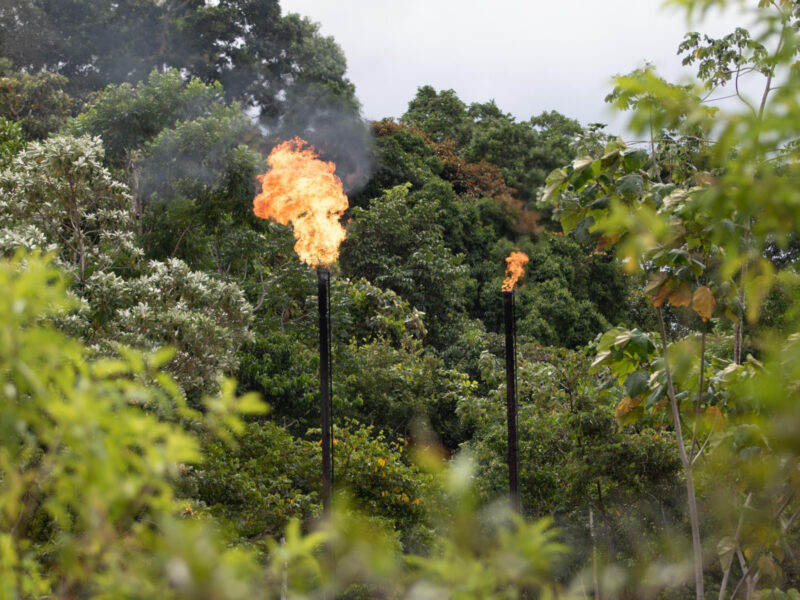Over the past several months, Kakataibo Indigenous communities in the central Peruvian Amazon have intensified their non-violent actions to prevent further invasions of their lands by drug-producing gangs. However, as the Kakataibo resist, the risk of retaliatory violence against them increases. Unfortunately, two weeks ago Mariano Isacama, one of their leaders, “disappeared.”
The Native Federation of Kakataibo Communities (FENACOKA) asked Amazon Watch to support their efforts in formally denouncing Mariano’s “disappearance.” They have also sought assistance in raising political awareness about their ongoing struggles against the organized crime networks threatening their territories.
As of this writing, Mariano’s whereabouts remain unknown. The prosecutor’s office is already investigating the case as a possible homicide, with Kakataibo leaders assisting in the investigation.
The Kakataibo people and territory have experienced land invasions and violence for centuries. Currently, an estimated 3,500 Kakataibo live in 13 communities surrounded by coca plantations, land invaders, illegal airstrips, and drug labs. Narcotraffickers are attempting to take over the remote Kakataibo forests, turning them into a hub for cocaine production and transportation, thereby consolidating the entire cocaine production chain for export from Peru. Even the two Kakataibo groups who live in isolation on protected reservations are under attack, as drug traffickers seek to use their lands as especially remote bases for their operations.
As FENACOKA has fought to defend their communities over the last few years, they have increasingly been targeted by narcos, illegal loggers, and other land invaders, resulting in the murders of six of their leaders since 2010.
Just last December, Benjamín Ríos was murdered. FENACOKA reported that he was targeted because of his work as a monitor, responsible for detecting narco-deforestation and the presence of illegal settlers in his territory.
Over the past few years, the Kakataibo have raised the alarm about the threats to their communities both within Perú and internationally, continuously demanding support from government authorities. In our Amazon Underworld report, the situation of the Kakataibo was included as one of the most critical in Peru, illustrating how organized crime has become one of the most urgent threats to the Amazon rainforest and Indigenous territories and rights.
Organized peoples vs. organized crime
Unable to tolerate the ongoing situation, a newly-formed alliance between the Indigenous Guards of the Kakataibo, Shipibo, and Asháninka native peoples announced on July 1 that they will take control of access to communities in areas affected by coca crop invasions. They have also demanded joint search operations for the missing leader, to be conducted by the Indigenous guards and regional police. Additionally, the Kakataibo have pledged to protect the Indigenous peoples living in isolation in areas adjacent to their territories.
The alliance released a declaration announcing these measures, stating:
“Since March 2024, the Kakataibo organizations have intensified their territorial control and protection operations. This included seizures of illegal timber, destruction of clandestine laboratories, burning of coca fields, control of roads, community patrols, and reconnaissance overflights over the Kakataibo Indigenous Reserve.
This decision was taken despite the risks it implies for the Kakataibo families due to the ongoing illegal seizures of community areas by cocalero settlers, both titled and those in the process of titling.”
Since then, Marcelo Odicio, President of the Kakataibo Federation, has once again put himself at risk by publicly raising the alarm. He stated, “The Indigenous Guards report that since May 2024 they have evidence that actors related to coca cultivation have been preparing the necessary logistics to start a new wave of land grabbing. This includes plans to convince municipalities and the regional governments of Huanuco and Ucayali to legalize their occupation by delivering new individual titles and certificates of possession, to the detriment of the territorial integrity of the native Kakataibo communities.”
This situation marks the beginning of a new chapter of conflict and risk for the Kakataibo defenders. On July 4, the community members of Puerto Nuevo initiated the expulsion of settlers and destruction of coca crops within their territories. Simultaneously, other Kakataibo communities are planning to undertake similar actions. In cooperation with the Indigenous Guards and other allies, they are preparing to contest territorial control against the invading settlers.
Mobilizing support for the Kakataibo as they confront a new territorial crisis
Since the onset of this new territorial crisis, Amazon Watch has mobilized to support the Kakataibo leaders, helping them reach major media outlets and combat misinformation about the situation. Currently, our Amazon Defenders Fund is supporting the implementation of emergency security measures for the most vulnerable Kakataibo leaders, who face the greatest risk as the visible faces in these conflicts. In collaboration with FENACOKA and AIDESEP’s regional organization in Ucayali (ORAU), we have sent out alerts to national and international institutions on the high risk of attacks on the Kakataibo, and confrontations in the coming days and weeks.
Together with different allies we are advocating for the need to support to the Kakataibo and maintaining pubic pressure on the police, prosecutor’s office, and other government representatives.
Without real solutions, episodes like this will continue to be repeated in the territories where Indigenous peoples are at risk of being displaced by criminal organizations. For now, as usual, the government’s response has been slow and limited, as Herlín Odicio has denounced in national media.
The only definitive solution for the Kakataibo is to strengthen Indigenous stewardship, governance, and legal tenure over their lands. This requires a comprehensive strategy to bolster their territorial security through land titling of their communities, support for their local economies as alternatives to illicit crops, and security measures implemented by their Indigenous Guards, supported by government institutions. We will keep pushing for these solutions and standing by our Indigenous allies.














